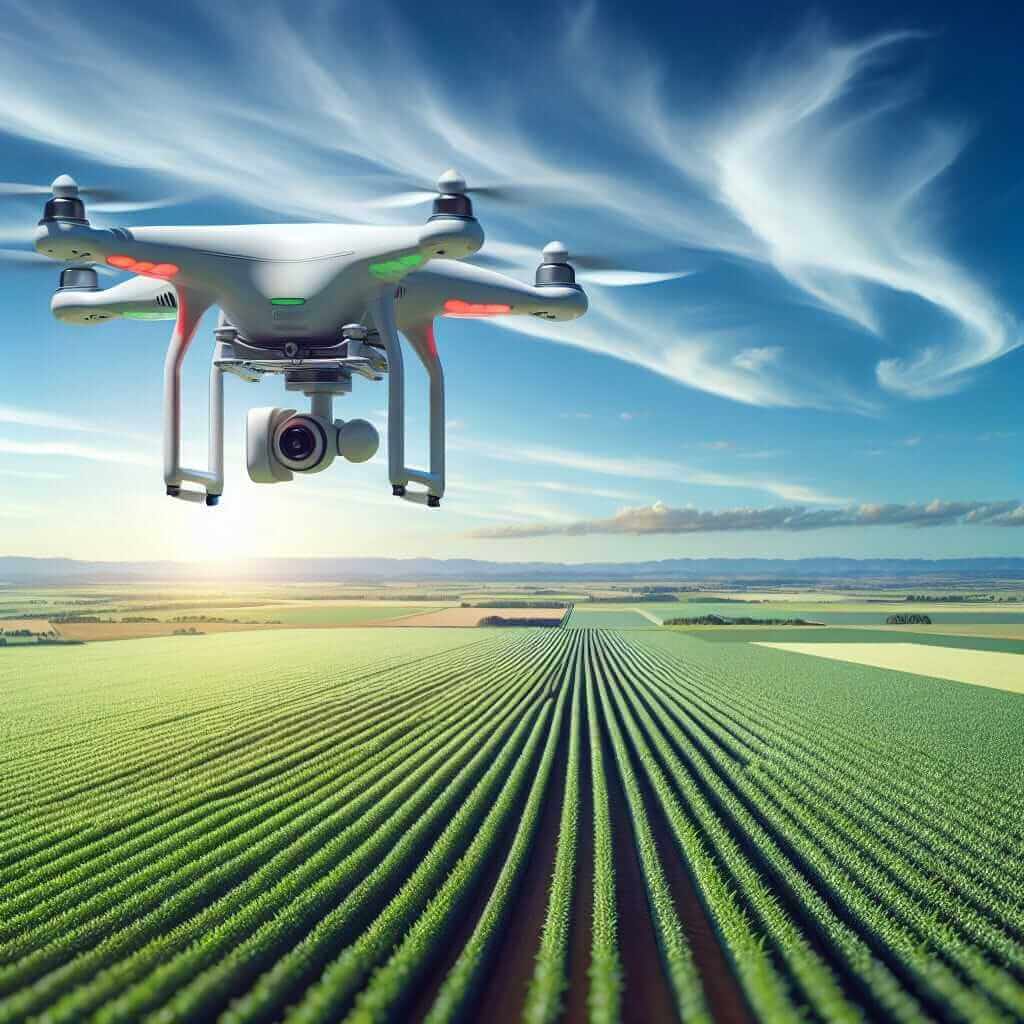The IELTS Reading Section is designed to assess a variety of reading skills, including understanding the main idea, reading for detail, skimming, understanding logical argument, and recognizing writers’ opinions, attitudes, and purpose. The topic of how Artificial Intelligence (AI) is transforming various industries, including agriculture, is increasingly relevant. Considering the rapid advancements in technology and its profound impact on agriculture, this topic is highly likely to appear in future IELTS exams, offering both a challenge and an opportunity for candidates to showcase their reading skills.
Reading Passage: How is AI Transforming the Agriculture Industry?
Artificial Intelligence (AI) has become a game-changer in various sectors, and agriculture is no exception. The integration of AI technologies into agriculture is revolutionizing the traditional farming practices, leading to increased efficiency, cost-effectiveness, and environmental sustainability.
The Role of AI in Precision Agriculture
Precision agriculture is an innovative methodology that makes use of AI to monitor and manage field variability in crops. Using satellite imagery, drones, and sensors, AI algorithms analyze extensive data to provide insights on the optimal time for planting, irrigation, and harvesting. This approach minimizes the wastage of resources by applying them only where and when they are needed.
AI for Pest and Disease Detection
AI-powered tools are capable of identifying pests and diseases in crops at an early stage. Machine learning algorithms analyze images of plants to detect irregularities that indicate disease or pest infestation. Early detection allows for timely intervention, reducing crop damage and loss.
Automated Machinery
The use of AI in agricultural machinery is streamlining processes such as planting, weeding, and harvesting. Autonomous tractors and robotic harvesters are equipped with advanced sensors and AI algorithms that enable them to perform tasks with precision and efficiency. These machines can operate for longer hours than human labor, increasing productivity.
AI and Data Analytics
Big data analytics powered by AI provides farmers with actionable insights into crop performance, soil health, weather patterns, and market trends. This data-driven approach helps farmers make informed decisions that optimize yield and profitability. AI systems can forecast weather and market prices, enabling farmers to plan their activities and sales strategies more effectively.
Sustainability and Environmental Benefits
AI adoption in agriculture also contributes to sustainability. By precisely managing inputs such as water, fertilizers, and pesticides, AI reduces their excess use, thereby decreasing environmental pollution. Moreover, AI-driven monitoring and management systems promote conservation practices that enhance soil health and biodiversity.

Questions
Multiple Choice Questions
-
What is the main benefit of precision agriculture?
- A. Reduces cost of labor
- B. Increases resource wastage
- C. Minimizes resource wastage
- D. Enhances pest infestation
-
How does AI help in pest and disease detection?
- A. By manually inspecting each plant
- B. By using human labor for early morning checks
- C. By analyzing images to detect irregularities
- D. By eliminating the need for pesticides
True/False/Not Given
- AI-powered tools can identify pests in crops after significant damage.
- Autonomous tractors can only operate for shorter hours than human labor.
Matching Information
Match the information with the correct paragraph:
- AI for Pest and Disease Detection
- Automated Machinery
- AI and Data Analytics
Sentence Completion
- AI systems can forecast ___ and market prices.
- By managing inputs precisely, AI reduces ___ pollution.
Answer Keys
Multiple Choice Questions
- C. Minimizes resource wastage
- C. By analyzing images to detect irregularities
True/False/Not Given
- False
- False
Matching Information
- AI for Pest and Disease Detection – Paragraph 2
- Automated Machinery – Paragraph 3
- AI and Data Analytics – Paragraph 4
Sentence Completion
- weather
- environmental
Common Mistakes
- Misinformation: Misinterpreting the role of AI in pest control as a manual process rather than an automated one.
- Incomplete Understanding: Not comprehending the overall benefits AI provides in terms of resource management, leading to incorrect answers in the sustainability section.
- Detail Overlook: Overlooking key details such as the ability of AI systems to operate longer than human labor.
Vocabulary
- Efficiency (noun) /ɪˈfɪʃənsi/: The ability to accomplish a task with minimum waste of time and effort.
- Algorithm (noun) /ˈælɡərɪðəm/: A process or set of rules to be followed in problem-solving operations.
- Autonomous (adjective) /ɔːˈtɒnəməs/: Acting independently or having the freedom to do so.
- Biodiversity (noun) /ˌbaɪəʊdaɪˈvɜːsɪti/: The variety of plant and animal life in a particular habitat.
Grammar Point
Passive Voice in Reporting Results
Passive voice is essential for formal and academic writing, especially in reporting results where the doer of the action is not as important as the action itself.
- Example: “AI algorithms analyze extensive data.”
- Passive: “Extensive data is analyzed by AI algorithms.”
Advice for Scoring High in Reading
- Practice Regularly: Consistent practice with diverse texts improves speed and comprehension.
- Expand Vocabulary: Building a robust vocabulary aids in understanding complex texts.
- Time Management: Allocate time wisely to avoid spending too long on any single question.
- Read Instructions Carefully: Ensure you understand what each question requires before answering.
Focus on honing these skills and deepen your understanding of contemporary issues, such as the transformative role of AI in various industries, to excel in the IELTS Reading section.